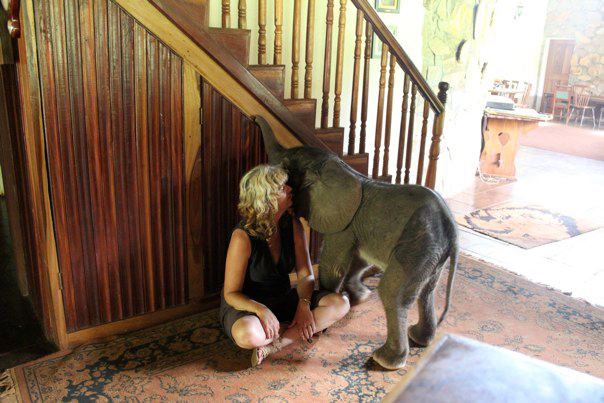Somewhere, someone is sitting in a dimly lit room, looking anxiously at a calendar and thinking, “Which of the last 20 days of this campaign will be the one in which the candidates address climate change?” Bad news, straw man. It ain’t going to happen.
Part of the reason it’s not going to happen is that voters don’t prioritize the issue. Another large part is that climate scientists aren’t usually in the business of making climate science a political issue. Because they’re rigorous in ascribing causation, climate scientists are loathe to point to extreme weather events and say, “This is what climate change looks like.” And since they won’t do that, it makes it much easier for opponents of taking action to suggest that climate change is not a real thing.

You will be unsurprised to learn that James Hansen was one of the scientists.
Which is why it’s good news that scientists are starting to tie specific events to the effects of climate change. From the Los Angeles Times:
In a break with the mainstream scientific consensus, a few prominent climate scientists now argue that there have been enough episodes of drought and intense heat in the last 10 years to establish a statistical pattern of extreme weather due to global warming.
One of those scientists is NASA climatologist James Hansen. In a study published last month in the Proceedings of the National Academy of Sciences, he noted that dramatic events like droughts and heat waves affected just 1% of Earth’s surface between 1950 and 1980; in the last 30 years, that figure has jumped to 10%. …
Hansen isn’t the only one who suspects that the signature of climate change can be seen in recent weather trends.
Around the world, “the incidence of drought is consistent with what the climate models are predicting,” said John Seinfeld, an atmospheric researcher at Caltech. “It certainly doesn’t appear to be out of line to conclude that this last summer could be statistically attributed to global warming.”
The Times tempers the article — the headline for which is “Some climate scientists, in a shift, link weather to global warming” — by noting the reticence of other scientists to blame climate change for phenomena.
But the article also notes that scientists are predicting how climate change (and, in particular, Arctic ice melt) will affect winter weather. Such short-timeframe predictions could make it easier for people to understand how climate change and extreme weather are linked.
One scientist put the link in terms that any fan of the San Francisco Giants or Tour de France might understand.
Asking whether the summer’s record heat was evidence of global warming is like asking whether steroids helped a baseball player hit a home run in the bottom of the ninth inning during the World Series, said Anthony Leiserowitz, an environmental scientist with the Yale Project on Climate Change. If the player was able to hit home runs before he took steroids, it would be impossible to know whether any particular home run could be traced directly to performance-enhancing drugs. However, at the end of the season, it would be clear that the player hit home runs with greater frequency.
“That’s what we have here,” Leiserowitz said. “We’ve juiced the world’s climate system by putting these gases in the atmosphere.”
I can understand American voters pooh-poohing egghead scientists. But if they reject a solid sports analogy, then this thing might not be winnable at all.



